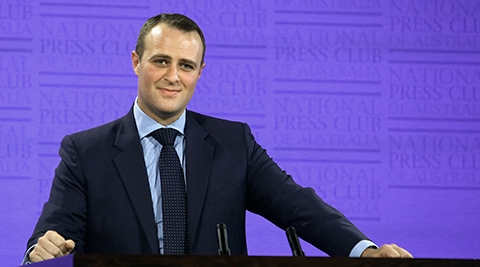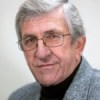Human Rights “Roundtable” – has Australia become a Soft Theocracy?

By Brian Morris
Has the Christian lobby influenced the Human Rights Commission (HRC) in discrimination against gays? If the answer is “no”, why has the HRC set up a ‘Religious Freedom’ Roundtable for the faithful, on 5th November?
This forum is not about ‘religious freedom’, it simply reflects a resurgent Christian lobby clamouring for new exemptions from anti-discrimination laws. As one clear example, Church leaders want special “religious liberty” for any Christians in the lucrative wedding industry to refuse services to gays, once same-sex marriage is finally legalised. They want to give caterers, photographers, outfitters, and others the “liberty” to snub gay couples who violate their religious beliefs.
It’s been brewing since the HRC’s Tim Wilson took office in 2014, and while he is also “defacto” Commissioner for LGBTI issues there are legitimate questions about how far he’ll go in shaping HR policy, to accommodate Christian anger at the very idea of marriage equality. He is reported as saying, “…we can design a law that’s more mindful of religious freedoms.”
‘Freedom of religion’ has been mandated for decades under a UN charter, adopted by Australia, and religion already has many ‘extended freedoms’ – including exemptions from anti-discrimination laws in education, health and aged care.
Consider also their grants and annual tax breaks worth billions; that Australia has the largest number of religious schools per capita in the OECD; that religious instruction and a national Chaplaincy Program persists in public schools – despite government funding twice being ruled unconstitutional by the High Court.
It can be said these privileges, even now, violate the basic tenets of a secular Australia. Many will add that the nation is already a “soft theocracy (1) – where Church and State share a cosy symbiotic relationship. And this image may harden if anticipated policy recommendations flow from the upcoming Roundtable.
Clearly, Human Rights are central to secular philosophy, but so too is the separation of Church and State. ‘Freedom of religion’ does not mean a ‘right’ to Christian privilege, or to use any faith as the pretext for exemptions from the law.”
Recently, the ABC reported comments by Anglican Bishop, Robert Forsyth, who argues that “wedding service providers should have the ‘religious freedom’ to refuse to cater for gay couples.” The report included references to countries where same-sex marriage is legal, but none have seen the backlash predicted in this new wave of Christian opposition.
Bishop Forsyth heads the Religious Freedom Reference Group and is expected to attend HRC’s forum. So too is Catholic Archbishop of Sydney, Anthony Fisher, who goes further by calling for “religious Liberty” to nullify secular policy.
Clearly there are two sides to this vexed question, so it’s surprising that invitations to submit ideas for the event were sent primarily to faith-based organisations. Secular and rationalist groups, who have much to say on this issue, appear to have been an afterthought.
Of the 200 invitations to make submissions, only four are reported to have gone to secular organisations. At the forum they will be joined by forty representatives from Australian Churches and faith-based institutions. By any yardstick there is considerable imbalance in representation – a disconcerting factor given that the non-religious viewpoint is determined as having equal rights to ‘freedom of expression’, under international conventions. It’s particularly strange when Australians are now more than 50 per cent non-Christian.
The HRC decision only to invite national bodies creates an inbuilt bias – with scores of Churches and national religious lobby groups, compared to a handful with a “secular” voice. By comparison, the Australian Bureau of Statistics called for “all submissions” with ideas for changes following the 2011 Census – including on the “Religious Affiliation” question.
Commissioner Wilson loses sight of Article 18 of the Universal Declaration of Human Rights (UNDHR). It serves to protect both ‘Religions and Beliefs’ – a mandate that specifically includes rights of expression for all non-religious and atheist beliefs. The Roundtable should be focused on ‘Freedom of Belief’, not solely for ‘Religion’.
So, what are we seeing here? Surely not a religious Trojan Horse to lobby for new anti-discrimination exemptions when gay marriage is finally legalised — adding to Church exemptions already enjoyed in education, health and aged care?”
Bishop Forsyth and Archbishop Fisher are among many religious leaders campaigning for exclusive powers to discriminate against those who offend their beliefs. Religion cannot be regarded as occupying the moral high ground – it is in no way superior to secular values; and human rights does not mean religious privilege…!
There are elements of concern that also surround the Human Rights Commissioner and his agenda – when Tim Wilson was appointed he was dubbed the “Freedom Commissioner.” In principle that may sound laudable but we might also consider that prior to his role with the HRC he was a policy director with the conservative think tank, the Institute of Public Affairs, and we need to finally understand his objectives in terms of new ‘freedoms’ for the religious.
Shortly after assuming his new role he gave a speech at the Australian Catholic University. It was titled ‘The forgotten freedom of worship’ and in it he said, “In short, religion is about everyone’s relationship to their creator”. That sentiment is not shared by a public majority – and in matters that may lead to people of faith having a superior privilege we need to exercise extreme care; and this HRC Roundtable is no exception.
From the outset there has been a drive for a religious forum, and points of contention include; ignoring the UNDHR definition of ‘religion and belief’; inviting predominately faith-based groups to make submissions; allowing only token secular inclusion at the Roundtable; permitting the forum to appear heavily biased towards a Christian view of ‘Religious Rights’ under the law; and aiming to frame policy from what seems a predicable outcome.
We should also reflect on the HRC wording of its “Guiding Principles” for this ‘Religious Freedom’ Roundtable – particularly items 3 and 10 – which give an unmistakable Christian perspective on morality and the supernatural. Passages refer to religion as, “the moral and spiritual guidance of our nation” and with an objective to, “uphold the law and improve Australia’s moral and spiritual guidance.”
It is unacceptable, in a supposed secular democracy, to suggest that religion has some moral superiority – over and above the broad philosophical ethics and humanitarian values shared by most non-religious Australians. One can only trust that in the wash-up of this religious Roundtable, the Human Rights Commission will not allow it to be just another gateway for politicised Christianity to win new legal exemptions – and harden Australia’s image as a Soft Theocracy.
(1) Soft Theocracy — “A state where church and government purposes coincide to garnishee taxpayers’ money and resources, structurally through tax exemptions and functionally through grants and privileges.” Realising Secularism: Australia and New Zealand. 2010. Ed. Max Wallace.
 Brian Morris is a founder of The National Secular Lobby. The National Secular Lobby is a newly formed secular organisation promoting ‘secular politics’, the raft of social issues that relate in some way to the Separation of Church and State. Click here to see their aims and objectives.
Brian Morris is a founder of The National Secular Lobby. The National Secular Lobby is a newly formed secular organisation promoting ‘secular politics’, the raft of social issues that relate in some way to the Separation of Church and State. Click here to see their aims and objectives.
Like what we do at The AIMN?
You’ll like it even more knowing that your donation will help us to keep up the good fight.
Chuck in a few bucks and see just how far it goes!
Your contribution to help with the running costs of this site will be gratefully accepted.
You can donate through PayPal or credit card via the button below, or donate via bank transfer: BSB: 062500; A/c no: 10495969









